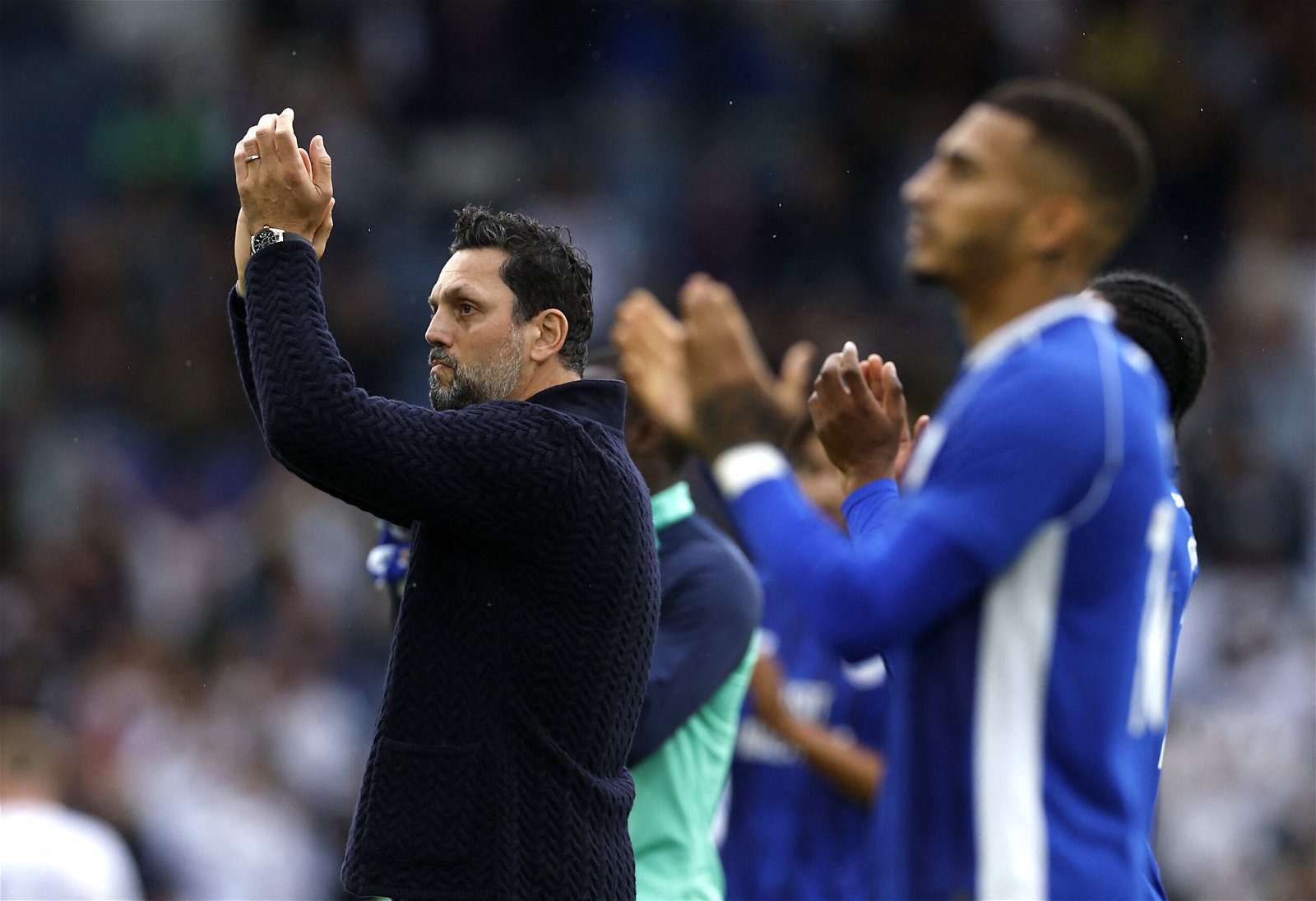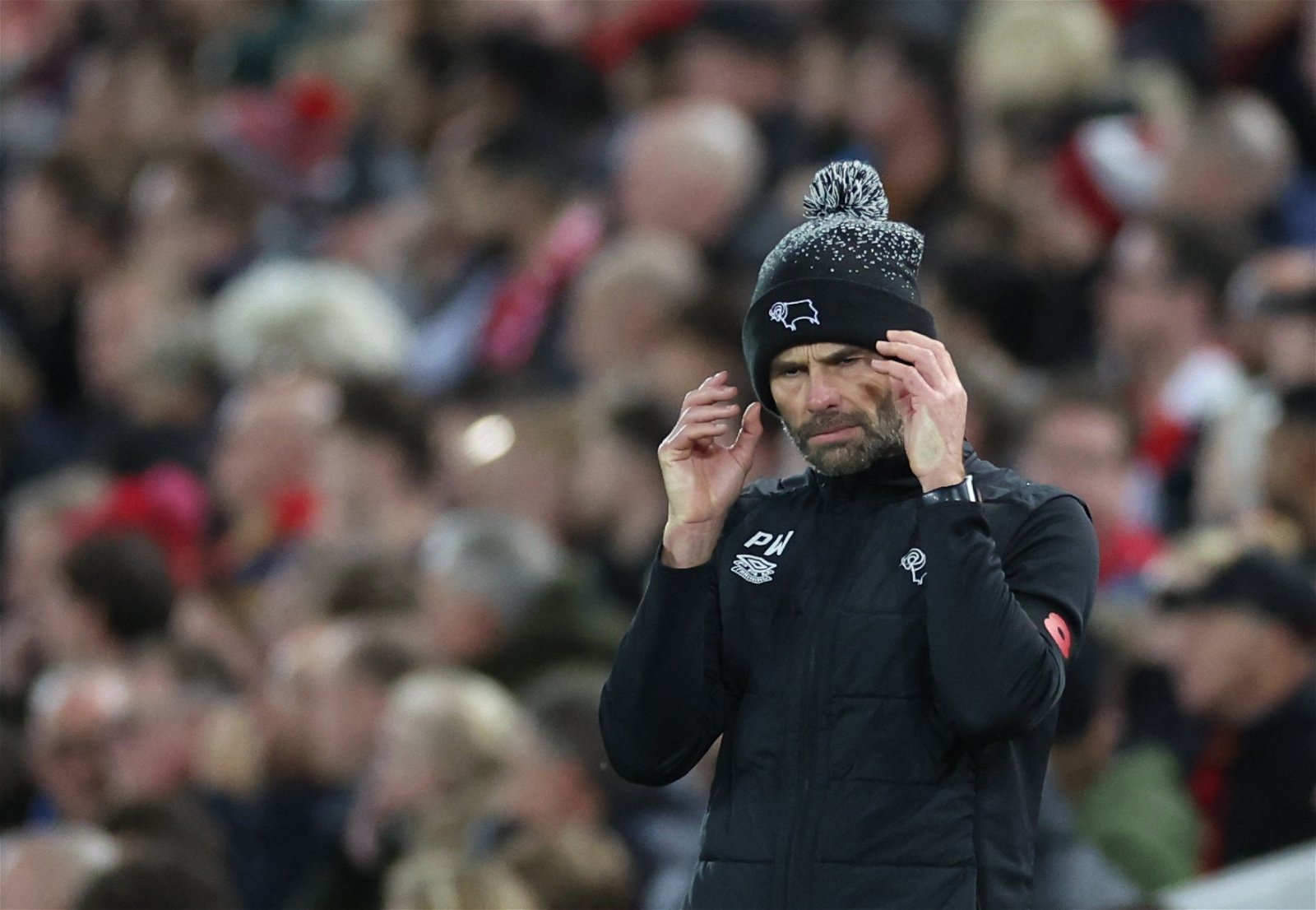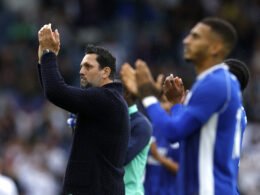It could be argued that before the appointment of Brian Clough at Nottingham Forest manager in 1976, Derby County did not see Nottingham Forest as their most formidable rivals. That was undoubtedly Leeds United. There has been much publicity of this rivalry and in particular the hostility between Clough and United manager Don Revie. This confrontation was ongoing through the late 1960s and early to mid 1970s until Clough left Derby is controversial circumstances in 1973. Revie was then appointed England National Team Manager in the summer of 1974 following a decade of success with Leeds. Clough was earmarked as the man to replace Revie and the rest as they say is history.
When Clough took over the Reds, they were in a similar position to Derby when he took over: in the Second Division of English football and seemingly in a period of stagnation. They were seemingly going nowhere. Clough had other plans and he achieved promotion the very next season. The season after that, Clough won the First Division title with Forest, becoming one of only 4 managers to have won the top flight with 2 different clubs. It was the way that Clough had won these titles that separates him from the rest. Both Derby and Forest were stranded in the second tier and Clough performed miracles to win league titles with both. This is why to this very day, he is potentially the only harmonious factor that links the Reds and the Rams.
Forest’s European Cup successes in 1979 and 1980 respectively were a bitter pill to swallow for Derby and their fans. Not only had their local rivals achieved success they felt they were more worthy of, but they had done it with a management team and players that had been gathered from Derby. Players such as O’Hare and Gemmill had been at Derby under Clough. This ill will permeated the fixture for decades to come and even over 30 years later, it is a cause of much hostility between the rival fans.
Many people debate whether a Derby match between two teams from entirely different cities can be considered as significant or important as say, a Derby between two London teams or Manchester teams. Although not strictly local rivals in the sense that Manchester City and United are, this takes nothing away from the impact the match has on the area. In 2006, during a survey to determine the most fierce rivalries in British football, Derby County vs Nottingham Forest came 9th. This was ahead of both the Steel City Derby and Wolves vs West Brom. These are both enormous matches and shows how much this match means.
The shared history of the clubs has continued into the 21st Century. In 2006, Derby County appointed Preston manager Billy Davies as the man to lead the revival for The Rams. Derby had been in a serious rut since relegation from the Premiership. A flirt with the play-offs resulting in a Semi-Final loss to Davies’ old club Preston was the closest Derby got to returning to the Promise Land. Derby fans’ expectations were a mid-table finish with anything more considered a serious bonus. That season Derby were one of the Championship’s most dominant team and were right in the race for automatic promotion until the very final weeks of the season. The Play-Offs beckoned and after a thrilling Semi-Final against Southampton they were underdogs going into the final with West Brom but Davies managed to get Derby over the line with a 1-0 win. Derby were promoted.
This may not seem significant in terms of the rivalry but what was to happen next makes it all clear. Derby started the season in woeful form and Davies was eventually sacked. Derby went on to record a record low points total for a post-War Premier League season. They managed just a single win all season. Davies had alienated Derby fans throughout his time at the club. He often criticised the running of the club and his players. His sacking came as no real surprise and some argued it was for the good of the club.
The fact Davies had left the club under such circumstances was excuse enough for Derby supporters to feel hostile towards the Scot but he carried on stoking the fire. It started by claiming that he wished it had been ex-club Preston that he had taken to the Premier League and not Derby. He then preceded to join Nottingham Forest as First Team Manager. The outrage was felt across the A52. Davies was backed heavily in the transfer market during his time with Forest, something he had bemoaned during his Derby tenure.
A fiery match between the great rivals was played out at the City Ground on 29th August 2009 and was arguably the catalyst for the next few years of intense battles both on and off the pitch. Forest were 3-0 up at half time and seemingly romping to victory before Derby scored twice to make it 3-2 in the second half. It stayed this way and Forest had claimed bragging rights. At the end of the match, Forest striker and goalscorer Nathan Tyson, who would later join Derby, decided to remove a corner flag and precede to run across the front of the stand in which the visiting fans were gathered waving the said flag. This resulted in a mellay that led to both teams being fined and 3 players ending up with suspensions. This already fiery Derby now had some extra zest to it.
Derby have tended to dominate the match in recent years. They were unbeaten in 4 encounters before Forest’s 1-0 win at the City Ground this season. This led to Derby boss Nigel Clough, an ex-Forest player, being axed from his post. It has been debated in local circles that the match means more to Derby because they have no other serious rivals. Whereas Forest have Notts County within their own city, Derbyshire has only 1 other Football League team and that is Chesterfield, situated around 20 miles from Derby and 2 leagues below the Rams. Hardly the basis for a solid rivalry.
There is much water under the bridge where Derby and Forest are concerned. The match is renowned worldwide. A great feat for 2 teams that have had 1 season of Premier League football between them in the last 10 years. The 2 next meet at the iPro Stadium on 22nd March and it is without doubt the biggest meeting in a generation. Both teams are embroiled in the fight for automatic promotion and the match could be a decisive factor in achieving this goal. Both teams never want to lose this match, and next time it is vital they don’t!






